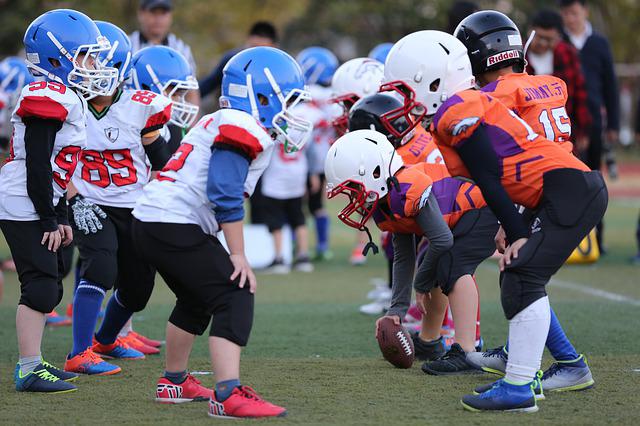Let’s talk about Why Physical Education is Important In Primary Schools. Physical education classes in school are an essential part of our children’s lives. They provide a safe environment for learning movement skills such as running, jumping, throwing, catching, climbing, balancing, dancing, swinging, playing sports, and gymnastics.
One thing you should know is that it is more than just sports. It is critical in school life because children learn skills such as fitness, teamwork, self-discipline, responsibility, confidence, focus, creativity, and respect. These qualities are important for future success.
Why Physical Education is Important In Primary Schools
Physical activity provides benefits to both mental and physical health and wellbeing. Children who participate in sports and physically related exercises report feeling happier, healthier, and more confident. Children benefit from learning in different environments.
There is evidence that children who engage in structured activities outside school have improved attention and concentration levels compared to those who spend less time outdoors. Read Also: Why it is important to teach science in primary schools
There are several reasons why schools should provide opportunities for students to practice healthy lifestyles, including building resilience and improving academic performance. Children who exercise regularly tend to score higher on exams and achieve better results in class.
In addition, kids who play sports or engage in other forms of physical activity are less likely to develop eating disorders, obesity, or diabetes later in life. This is not only based on sporting ability, as there are other factors that contribute to it.
Furthermore, parents and teachers value PE classes because they believe that they prepare their children for adulthood and allow them to interact with others in positive and fun ways. The benefits of teaching children to be physically active are endless. It improves their health, boosts their moods, builds their confidence, and helps them succeed academically.
They teach kids self-discipline, teamwork, cooperation, leadership, responsibility, personal safety, and respect for others. Physical education also helps children develop resilience, improve concentration, enhance academic achievement, and promote overall health and wellness.
10 Reasons Why Physical Education is Important In Primary Schools

There are numerous benefits associated with physical education. Here are 10 reasons why physical education is important in Primary schools:
1. Physical Education Helps Children Learn Self-Discipline
Children learn discipline when they participate in physical activity. This helps them understand that they must control themselves when faced with challenges. By participating in regular physical activity, children learn to manage their emotions and impulses when facing difficulties or negative situations.
In the early stages of life, children tend to behave anyhow they like if allowed at any moment. For example, have you tried watching kids play without rules? It’s just so funny and dangerous at the same time. When they’re not controlled they tend to lack discipline.
2. Physical Education Promotes Healthy Living
Studies show that children who regularly engage in physical activities live longer than their sedentary peers. Regular participation in exercise reduces the risk of chronic diseases such as diabetes, heart disease, stroke, hypertension, osteoporosis, and certain cancers.
It has been found that children who engage in physical education programs are healthier and happier compared to their counterparts who do not participate. Most children of the rich don’t do physical exercise and this further exposes them to health risks that are avoidable. Why Physical Education is Important In Primary Schools.
Children who participate in physical activity enjoy better sleep quality, greater energy levels, fewer headaches, and greater focus and memory recall. The sound health of a child is important in his or her academic development and as such wouldn’t be complete without physical exercise.
Why Physical Education is Important In Primary Schools
3. Physical Education Enhances Academic Achievement
Research shows that children who spend time exercising daily perform better academically than their inactive classmates. Studies also reveal that engaging in physical education comes positively with improved reading comprehension and language skills.
When I was in primary school, the brainers then often played a lot. When it’s time for sports, you won’t find any of them dodging to engage in any activity. Unknowingly, that was one of their secrets to outsmarting other pupils in the classroom.
4. Physical Education Builds Strong Social Skills
Social skills refer to the ability to interact appropriately with other people. Children who regularly engage in physical education exhibit stronger social skills than their counterparts.
For instance, they are better listeners, share easily, empathize, resolve conflicts peacefully, cooperate, follow directions, accept criticism, and maintain friendships.
Children who engage in moderate physical activity perform significantly better in tests of attention span and concentration than their fellows. Their listening skill and cognitive behaviour are top-notch. Why Physical Education is Important In Primary Schools.
5. Physical Activity Helps Children Develop Fitness
Children spend approximately 8 hours each day in school. This means that they miss out on nearly 16 hours of physical activity every week.
This lack of physical activity leads to poor fitness levels among children. The way some of our youths are becoming obsessed, it’s not encouraging hence something needs to be done about it. Obesity rates among young Americans are increasing rapidly. If current trends continue, one-third of American kids may become obese adults.
Regular exercise improves muscle strength, endurance, balance, coordination, and bone density. All these factors contribute to overall wellness. Why Physical Education is Important In Primary Schools.
6. Physical Education Encourages Participation in Extracurricular Activities
According to the National Association for Sport and Physical Education, participation in sports and physical activity programs is associated with higher grades, improved self-esteem, increased socialization skills, and greater involvement in community service projects. Participating in physical education helps children to engage in extracurricular sporting events and other recreational activities.
7. Physical Education Provides Opportunities for Students to Learn Teamwork Skills
As we discussed earlier, teamwork is an essential skill for success in any occupation. It allows individuals to work together effectively toward common goals.
Teams often consist of two teams working together against another team. For example, a group of students might host a football match against another group of students in the same class or higher classes.
Students learn cooperation, respect, responsibility, and discipline when they practice teamwork. They also learn about problem-solving and decision-making. These skills can be applied to future occupations and other areas of life. Why Physical Education is Important In Primary Schools.
8. Physical Education Increases Self-Esteem
Self-esteem is defined as the degree of approval or disapproval that people feel towards themselves.
People with low self-esteem tend to focus on negative aspects of themselves. They often compare themselves unfavorably to others.
Physical education helps students develop self-confidence. It gives them the opportunity to compete successfully against their classmates. They also learn how to handle failure gracefully without thinking less of their ability.
Why Physical Education is Important In Primary Schools
9. Physical Education Reduces Stress Levels
Stress affects everyone differently. Some people see stress as something not too serious for them to deal with, while others see it as something that is capable of taking away their precious life. As well, everyone cannot handle stress the same way. Some people cope well with stress. However, many people struggle to manage stress effectively.
When stressed, some people turn to unhealthy coping mechanisms such as smoking cigarettes, drinking alcohol, overeating, or using drugs. It is rare for primary school pupils to engage in such while still under the care of their parents but that doesn’t hide the fact that some of them do engage in them. Read Also: Reasons for Decline of Male Teachers in Nigeria.
Instead, people should seek ways to reduce stress. One way to do so is to take up physical activity. Physical activity releases endorphins into the brain which makes us happier. Endorphins also increase our sense of well-being. That’s why we should allow children to play around but not excessively.
10. Physical Education Makes Learning Fun
Learning is fun. That’s why we go to school. We want to enjoy ourselves while we’re studying. Unfortunately, many students dread going to school. They dislike being bored during class time.
Physical education classes make learning fun. The students get excited about participating in games and exercises. They also enjoy spending time outdoors. Playing outside is a great way to burn calories and stay active.
Why Physical Education is Important In Primary Schools
Summary
In conclusion, physical education is important for children’s mental and emotional growth. It helps children develop healthy lifestyles and prepares them for adulthood. It helps children develop physically, socially, emotionally, intellectually, and spiritually. PE has been proven to improve academic performance, promote positive health habits, and encourage students to participate in extracurricular activities.
However, most parents don’t realize that physical activity is one of the most effective methods of reducing childhood obesity. It also enhances their academic performance. Therefore, it should be mandatory in all primary schools. In the life of every child, physical education is important.



